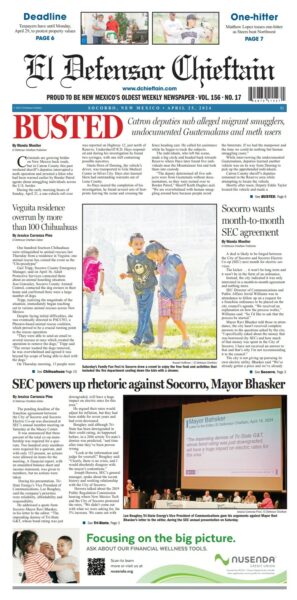Where has the time gone? The last few weeks have been rush-rush-rush, but here we are just four days before Christmas and it feels like everything is slowing down. Since the hubbub of Thanksgiving weekend the days have crept by, waiting for the Christmas shoe to drop.
I don’t know about you, but I am prone to nostalgia and quiet contemplation, like that mouse who’s not stirring the night before Christmas.
I know, I know, that’s a pretty weak metaphor, but I blame it on the dearth of daylight hours and the ridiculously early gloaming.
But wait, we have finally reached the astronomical turning point I’ve been looking forward to. Today heralds the winter solstice, which gives us only nine and a half hours from sunup to sundown. Gloomy, yeah, but the upside is that after today the hours of daylight will start increasing … at the breakneck speed of just under a minute each day, and – look out – we’re on our way to spring.
Tech students are long gone and won’t be back until well after New Year’s, and Socorro school kids are also getting off – two whole weeks – likewise for Magdalena.
Speaking of the passage of time, last week in this space the time machine in my head looked at what life was like in the 1950s. This got me curious about Christmas week in Socorro’s earlier times. I proceeded to find myself rummaging around the Chieftain’s newspaper “morgue” and picked out random issues from around the turn of the last century.
Interestingly, there was little mention of the holiday.
For instance, in the Saturday, Dec. 19, 1903 edition, the editor, E.A. Drake, wishes “a merry Christmas to every reader of the Chieftain. May every sorrow be forgot and every heart be filled with joy.” At the bottom of page one, readers are notified that “there will be a dance at the opera house Christmas eve, given by the San Antonio band. Admission, $1.”
Also covered in that issue was a gold strike in the Caballo Mountains and repairing damage a flood in Socorro caused. Further down the page, he asserts, “Any wrongdoer of high station or low who thinks that he can safely defy the power of a united press has something yet to learn.”
Under the masthead of the Dec. 19, 1908 edition, the above-mentioned editor updated his Christmas wish. “Merry Christmas to all readers of the Chieftain. May their heart be as light as their pockets.”
There was also an editorial arguing for statehood. “New Mexico is entitled to statehood by exactly the same considerations that have admitted other territories into the Union of states and by additional considerations that many of them could not offer,” it says. “In fact, New Mexico even as a territory outshines several of the states in every material respect that goes to make a great commonwealth. Let New Mexico in.”
It must have been a slow news week because page two offered a dialogue on how to mount a horse.
“Mount your horse on the left side.”
“Why? What difference does it make?”
“It’s the rule.”
“But why should it be the rule?”
“Because in the past horsemen wore swords. They wore them on the left hip. Hence, had they mounted on the right side, the sword would have got in the way. So they mounted on the left, and we still mount on the left. Horses are accustomed to it, and if you try to get up from the right you are liable to be kicked.”
The Dec. 25, 1896 two-page issue of The Chieftain had no mention of Christmas. It did cover stories like Thomas Catron arguing for statehood in Congress, Cuba’s fight for independence, and the shooting of 16-year-old Carlos Guerra by 16-year-old Clemacio Apodaca.
But what caught my eye was an opinion by editor W.S. Williams concerning women with mustaches.
“One of the old fogies who spend their days compiling disagreeable statistics says that mustaches are more common among women now than formerly and that fully eight percent of the women are thus adorned. This is nonsense,” he opines. “Probably this curmudgeon’s eyebrows are so thick and overhanging that everything he sees appears to have whiskers. In the countries of the Latin race – Italy, France and Spain – women with mustaches are plentiful enough. There is the queen of Spain, for one. She does not mind it, for women with downy lips are admired in those parts of the world. Among nations of the Teutonic race, on the contrary, there is a squeamish distaste for them, probably because they are so rare. Women in England are not usurping mustaches along with other institutions which man has surrendered to or divided with them.”
What? Huh?
We return you now to your regularly scheduled newspaper.

















